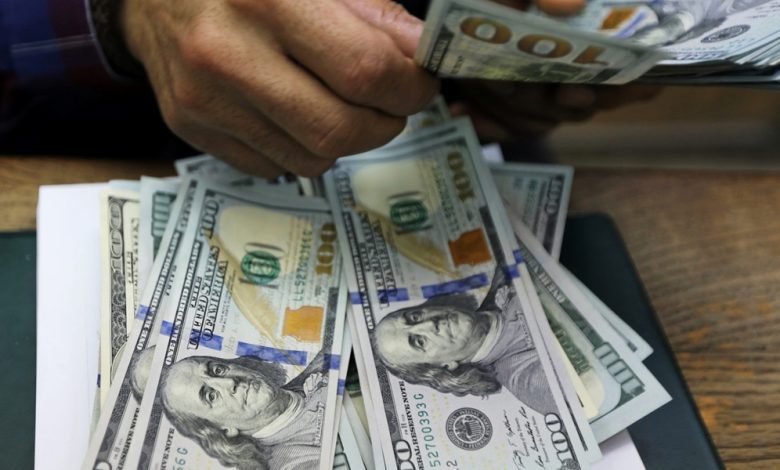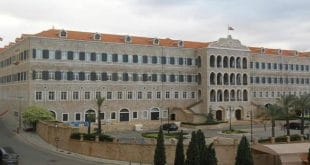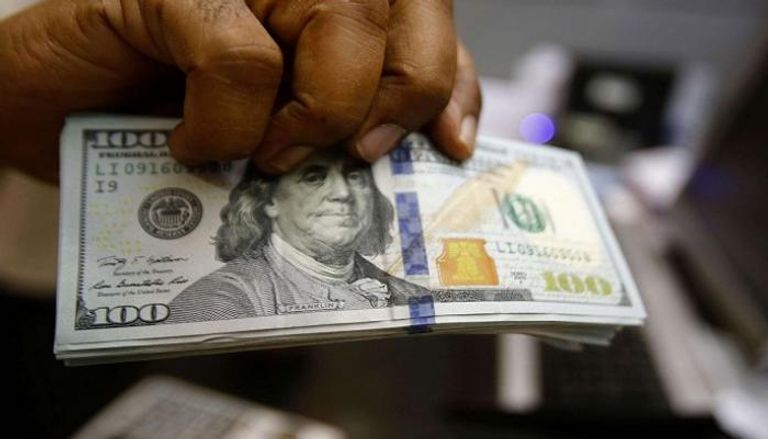على وقع تصاعد التوترات في المنطقة،لاسيما في لبنان كمحور أساسي في جبهة «إسناد غزة» ينتاب اللبنانيين القلق من اتساع رقعة الحرب وثمة تساؤلات كيف ستؤثر هذه التطورات على الوضع الاقتصادي والمالي وما إذا كان سعر صرف الدولار سيتأثر أيضاً ويعود إلى زمن التقلبات أم أنه لم يتأثر وسيحافظ على إستقراره،مع ارتفاع وتيرة التهديدات و الاعتداءات الإسرائيلية والتخوف من توسع رقعة الحرب العين تبقى على سعر الصرف الذي يشهد استقراراً منذ أكثر من سنة ونصف فهل سيتمكن مصرف لبنان من الاستمرار في ضبط سعر الصرف في حال توسعت الحرب أم أنه سيعود إلى زمن الإنفلات والتقلبات؟
عميد كلية إدارة الأعمال في جامعة القديس يوسف ورئيس الإتحاد الدولي لرجال الأعمال وسيدات الأعمال اللبنانيين البروفسور فؤاد زمكحل يؤكد أنه لا شك بأن هناك تخوّفاً من تقلبات جديدة في سعر الصرف في حال اندلاع الحرب الشاملة،ولكن الأمر الأساسي الذي يجب أن يتم الإنتباه له هو أن المعطيات قد تغييرت منذ العام 2019.
ويكشف زمكحل في حديث لـ«اللواء» أن إقتصادنا بات إقتصاداً مدولراً يإمتياز،واليوم الدولار الأميركي الموجود بين أيادي اللبنانيين هو أكثر بكثير من الليرة اللبنانية،والمصرف المركزي منذ سنتين أو أكثر يقوم بسحب الكتلة النقدية بالليرة اللبنانية من السوق عبر عدة وسائل ليستطيع القيام بعملية ضبط لـ «الليرة» وهذه من الطرق التي استطاع المصرف المركزي أن يُبقي سعر الصرف مستقراً على الـ89500.
ويذكّر أن التقلبات التي كانت تحصل في سعر الصرف سابقاً كانت مبنية على بعض من العرض والطلب،ولكن كان أساسها مبنياً على وجود المنصات الإلكترونية التي لحد هذه اللحظة لم نعلم من كان وراءها،ومن كان يديرها،ومن يقوم بعملية تغييرها.
ويشدد على أن هذه المنصات التي هي من كانت تقوم بعملية التلاعب في سعر الصرف،وتجعله يرتفع وينخفض وكان لديها سعر صرف على «صيرفة»،وكما يعلم الجميع أن هذه المنصات توقفت تماماً بسبب أنه بات لدينا سعر صرف رسمي وهو 89500 ليرة مع كتلة نقدية بالدولار الأميركي وموجودة في السوق المحلي وهي التي تتبدد لذلك أصبح الإقتصاد إقتصاد مدولر بامتياز مع سحب الكتلة النقدية بالليرة.
ويختم زمكحل قائلاً:«لكي يكون هناك تقلبات في سعر الصرف،يجب أن تكون هناك كتلة نقدية بالعملتين،لذلك من الصعوبة أن يكون هناك تغييرات كبيرة في سعر الصرف نتيجة لتطور الأوضاع القائمة لأن كل شيء في لبنان بات مدولراً سواء المتاجر أو في الإقتصاد ككل وحتى رواتب اللبنانيين باتت مدولرة».
أما الخبير الإقتصادي لويس حبيقة فيشير إلى أن سعرف الصرف لم يتأثر بالتطورات الحاصلة لأن الإقتصاد في لبنان بات إقتصاداً مدولراً،فلم يعد هناك تداول فعلي بالليرة اللبنانية ولم يعد هناك أي أحد يقوم بأخذ مجموعة من الأموال بالليرة اللبنانية ويتم استبدالهم من خلال صيرفة بالدولار،وأقل محل تجاري يعطي الرواتب لموظفينه بالدولار في يومنا هذا، لذلك لم يعد هناك ليرة لبنانية بيد الموطنين ليذهبوا إلى السوق لشراء «الدولار» وهذا الأمر بات يسري على سائر القطاعات في لبنان.
ويؤكد حبيقة في حديث لـ«اللواء» أن سعر الصرف لم يعد له أي قيمة فعلية في لبنان،لأن إقتصادنا بات إقتصاداً مدولراً أي أن المواطن بات يتقاضى راتبه «بالدولار» من جهة، ويدفع بـ«الدولار» من جهة أخرى وفي كل شهر تتزايد المدفوعات التي يقوم المواطنون بدفعها بالدولار كـ«فاتورة الكهرباء» و«البنزين» و«الأدوية» وسواها لذلك لم يعد هناك أي تأثير للليرة اللبنانية.
ويشدد على أنه الليرة لم يعد لها ذلك التأثير المطلوب لأن إستخدامها بات لحاجات قليلة في لبنان،والمجلس النيابي لم يقم برفع الورقة النقدية من 100000 ليرة إلى 500000 ومن ثم إلى مليون ليرة ولو قام بهذا الأمر لكان ساهم برد جزء من قيمة الليرة ناهيك عن الإجراءات الأخرى الواجب قيامها.
ويؤكد أن سعر الصرف لم يعد لديه أي قيمة سواءٌ لأشياء بسيطة للغاية،جزئياً لذلك لم تؤثر عليه الأوضاع السياسية والأمنية التي يشهدها لبنان،وللإقتصاد المدولر حسنات وسيئات وحسناته هو الحماية من تغيير سعر الصرف،وسيئاته هو تخلي الدولة عن إستقلالها الإقتصادي من خلال ترك الليرة اللبنانية واللجوء إلى الدولار الأميركي لأن الليرة اللبنانية هي تمثّل صورة عن لبنان على الرغم من أنه في الأوضاع الحالية دولرة الإقتصاد هو ليس أمراً سيئاً بانتظار العودة إلى إقتصاد حيوي ومرن مثلما كان إقتصادنا في سبعينيات القرن الماضي.
ويختم حبيقة:«من يتأثر في حال تطور الأمور هو مدخولنا كمواطنين بالدولار،من خلال الوظائف التي تعطي الرواتب للمواطنين بالدولار لأن الخطر الحقيقي يكمن في إحتمالية زوال هذه الوظائف من خلال قيام بعض الشركات بأخذ قرار بالتسكير أو بتخفيف أعداد الموظفين،أو القيام بتخفيض الأجور نتيجة تأثر هذه الشركات بالحرب أو الأضرار التي تتكبدها جراء هذه الحرب،وبالتالي هذا ليس له أي علاقة بـ«سعر الصرف» ووضعه، وهذا ما يعكسه الوضع في لبنان إقتصادياً من ناحية الدخل في الدولار والصرف في الدولار».
المصدر: عبدالرحمن قنديل – اللواء
**Will Exchange Rate Stability Be Affected If War Escalates?**
As tensions rise in the region, particularly with Lebanon being a key player in supporting Gaza, concerns are growing among the Lebanese about the potential expansion of the conflict. There are questions about how these developments could impact the country's economic and financial stability, specifically whether the exchange rate of the U.S. dollar will be affected. Will it return to the volatility of the past, or will it remain stable? With the increasing frequency of Israeli threats and attacks, and the fear of a broader war, attention remains focused on the exchange rate, which has been stable for over a year and a half. The key question is whether the Central Bank of Lebanon can continue to maintain this stability if the conflict escalates, or if the exchange rate will return to the days of instability and fluctuations.
Dean of the Faculty of Business Administration at Saint Joseph University and President of the International Union of Lebanese Businessmen and Businesswomen, Professor Fouad Zmokhol, acknowledges the concern over potential exchange rate fluctuations in the event of a full-scale war. However, he emphasizes that the situation has changed significantly since 2019.
Zmokhol explains to *L’Orient-Le Jour* that Lebanon's economy has become heavily dollarized. Today, the amount of U.S. dollars in circulation in Lebanon far exceeds that of the Lebanese lira. For over two years, the Central Bank has been withdrawing Lebanese lira from the market through various means to maintain the stability of the lira, which has allowed the exchange rate to remain steady at 89,500 LBP to the dollar.
Zmokhol reminds us that past fluctuations in the exchange rate were largely driven by supply and demand, but they were primarily influenced by the presence of electronic platforms whose operators remain unknown. These platforms manipulated the exchange rate, causing it to rise and fall. However, since the official exchange rate was set at 89,500 LBP, and the economy has become dollarized with the withdrawal of Lebanese lira, these platforms have ceased operations.
He concludes by noting that for significant fluctuations in the exchange rate to occur, there must be substantial liquidity in both currencies. Given the current state of the economy, with most transactions conducted in dollars and the withdrawal of Lebanese lira from circulation, it is unlikely that the exchange rate will experience major changes due to the ongoing situation.
Economic expert Louis Hobeika echoes these sentiments, stating that the exchange rate has not been affected by recent developments because Lebanon's economy is now fully dollarized. There is no longer significant trade in Lebanese lira, and no one is exchanging large sums of lira for dollars through platforms like Sayrafa. Even the smallest shops are now paying salaries in dollars, so there is little Lebanese lira in circulation that could drive demand for dollars.
Hobeika emphasizes that the exchange rate has lost its significance because the economy has transitioned almost entirely to dollar transactions. The trend of paying for goods and services in dollars continues to grow, encompassing everything from electricity bills to fuel and medications. As a result, the Lebanese lira has lost much of its relevance.
He also points out that the lira’s influence has waned because its use is now limited to minor transactions. The Lebanese parliament has not taken steps to increase the denomination of banknotes from 100,000 LBP to 500,000 LBP, or even to 1,000,000 LBP, which could have restored some value to the lira alongside other necessary measures.
Hobeika concludes that the exchange rate is no longer impacted by political and security conditions in Lebanon. The dollarization of the economy has its pros and cons, with the primary benefit being protection from exchange rate fluctuations. However, it also represents a relinquishment of economic independence, as Lebanon increasingly relies on the U.S. dollar instead of its national currency. Despite this, in the current circumstances, dollarization is not entirely negative, as it offers stability while the country works to rebuild its economy to the dynamic and resilient state it enjoyed in the 1970s.
He cautions, however, that the real risk lies in the potential loss of income in dollars for Lebanese citizens. Companies may respond to the war by closing, downsizing, or reducing wages due to the financial impact of the conflict. This would affect incomes in dollars rather than the exchange rate itself, reflecting the broader economic situation in Lebanon, where both income and spending are now predominantly in dollars.
translated by economy scopes team
 سكوبات عالمية إقتصادية – EconomyScopes إجعل موقعنا خيارك ومصدرك الأنسب للأخبار الإقتصادية المحلية والعربية والعالمية على أنواعها بالإضافة الى نشر مجموعة لا بأس بها من فرص العمل في لبنان والشرق الأوسط والعالم
سكوبات عالمية إقتصادية – EconomyScopes إجعل موقعنا خيارك ومصدرك الأنسب للأخبار الإقتصادية المحلية والعربية والعالمية على أنواعها بالإضافة الى نشر مجموعة لا بأس بها من فرص العمل في لبنان والشرق الأوسط والعالم




